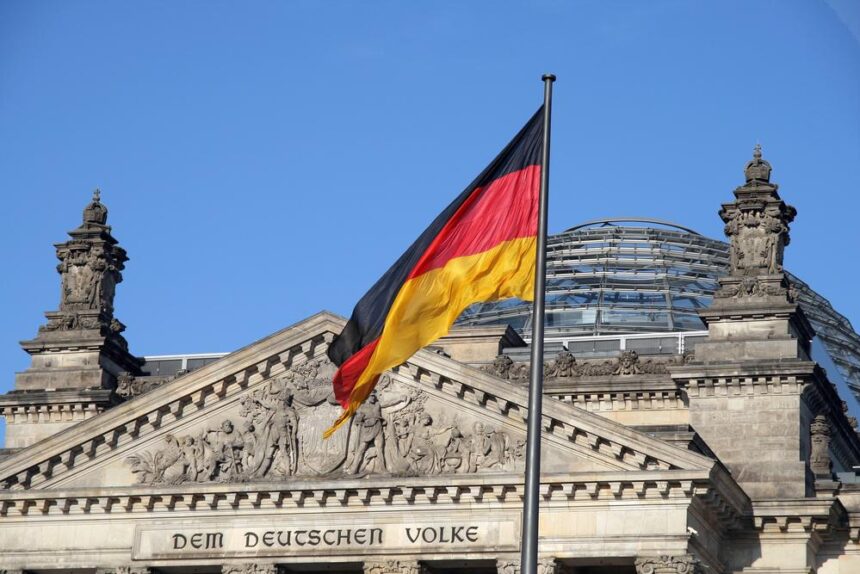![]()
- Germany is expecting a change in government with crypto policy change in the spotlight.
- While Bitcoin reserve adoption has split backing, MiCA adoption is poised to gain precedence.
The results from Sunday’s early parliamentary election in Germany show the Centre Right Alliance (CDU/CSU) as the winner. With the CDU/CSU securing majority seats, there are rising expectations of a more innovation-friendly environment.
How Can This Election Impact Crypto Policy Shift?
Germany’s center-right victory makes Friedrich Merz, the leader of the Christian Democratic Union (CDU), the country’s likely next chancellor. He would replace Olaf Scholz, ending the center-left Social Democrats (SPD) brief time in charge.
According to reports, Merz secured 28.52% of the vote, while the far-right Alternative for Germany (AfD) came second with 20.8% votes. Since no party managed to secure a majority in the German Bundestag’s 733 seats, there are already expectations of a potential coalition between the CDU/CSU and SPD.
Meanwhile, Merz now faces a major challenge of delivering on Scholz’s struggles. The country is fighting economic stagnation, ailing infrastructure, and migration concerns.
Mark Foster, European Union policy lead at the Crypto Council for Innovation, believes the Centre Right Alliance will likely support the European Union’s approach to digital innovation.
Speaking in an interview before the election, Foster said the Centre Right Alliance may show openness and a willingness to consider the impact of crypto policies. He believes the Alliance will likely focus on how digital technologies can help create some jobs and grow competition.
Foster, however, emphasized that he does not expect a massive change overnight in terms of either digital assets policy or digital euro. His sentiment is based on the fact that Germany’s elections in the past have had little impact on crypto. Foster added that he is also not expecting any effect on the day-to-day implementation of existing EU law.
Still, Germany has passed legislation to enforce the European Union’s Markets in Crypto Assets (MiCA) regulations. Although this came late, Germany still processed MiCA licenses over the past few weeks.
Germany called an early election after its coalition between the Social Democrats (SDP), Free Democratic Party (FDP), and Greens collapsed in November. The next agenda is for the newly elected members of parliament to vote for the country’s new chancellor and head of the federal government.
Germany’s Contribution to Crypto Innovation
Germany is making strides into crypto solutions, with lawmakers recently encouraging institutional investments in Bitcoin. As mentioned in our previous article, former German Finance Minister Christian Lindner proposed that the European Central Bank (ECB) and the German Bundesbank consider adding Bitcoin to their reserves.
Lindner said establishing a Bitcoin reserve would signal Germany’s commitment to the future of finance. Lindner’s comments follow heightened proposals for creating a Bitcoin reserve in the US.
In a recent update we covered, Germany’s central bank president, Joachim Nagel, disagreed with establishing a Bitcoin reserve. According to Nagel, Bitcoin does not meet the requirements of liquidity and security central banks demand for their reserves.
Despite Nagel’s criticism of Bitcoin, he has pledged support for creating a digital euro. He said Central Bank Digital Currencies (CBDCs) would be essential to Europe’s future financial resilience.






